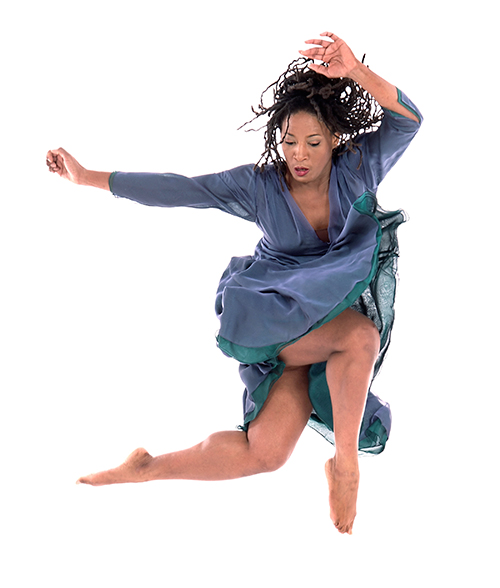SRU’s Payne named to American College Dance Association’s board

May 26, 2017
SLIPPERY ROCK, Pa. - Ursula Payne, professor of dance at Slippery Rock University, has been named to a second three-year term on the American College Dance Association's board of directors.
The ACDA, based in Maryland and having supported dance in higher education for more than 40 years, bills itself as "an association of students, teachers, artists and scholars whose primary focus is to support and promote the wealth of talent and creativity that is prominent throughout college and university dance departments."
Composed of 13 regions across the country, the ACDA sponsors regional conferences and annual festivals to offer one-of-a-kind opportunities for students and faculty to perform and network with one another.
When Payne's previous term with the East Central region expired, she reapplied for a seat in the Mid-Atlantic North region, of which SRU is a member. From the pool of applicants, she was selected to fill the region's only board opening this year.
As a board member, Payne will cooperate in general membership meetings to review the organization's policies and procedures, coordinate peer reviews and perform secretarial responsibilities. May 26, she will attend the national board meeting at Loyola Marymount University in Los Angeles to review regional assignments and plan future festivals.
"I have been fortunate enough to appreciate the ACDA from many different sides as a faculty member, adjudicator and instructor of master class. Now being able to participate on this level is a real honor," Payne said. "It gives me another perspective on how I can better help my own students."
Payne, whose skills range from choreography and performance to movement analysis and dance reconstruction, has dazzled the ACDA dating back to 1990, her sophomore year at SRU. It was at that time she attended the ACDA's annual regional festival to perform faculty-choreographed pieces until her graduation in 1992. Her senior appearance was especially rewarding when her own choreographed solo was both adjudicated and accepted into the national gala.
"It was definitely an amazing moment for me," Payne said. "It was a chance for my work to become reputable, for my name and face to really be seen amongst the dance community."
During her undergraduate years, the ACDA hosted other self-defining opportunities for Payne, including auditions with the leading dance institutions in the nation such as the Alvin Ailey American Dance Theater in New York City and the American Dance Festival. Payne was accepted and offered scholarships to both programs.
At the Ailey School, Payne studied for eight weeks, learning jazz from Celia Marta, and "Horton," a dance technique based on Native American dances, anatomical studies and other movement influences, from Ana Maria Forsythe.
"It was an eye-opening experience for me," Payne said. "I distinctly remember Desmond Richardson, one of the greatest American male dancers, standing in front of me at the barre. Being in an environment like that did so much for me as a student and as an instructor of dance later on."
At the American Dance Festival, Payne dedicated her summer to training and viewing signature works from African-American dance chorographers, including Pearl Primus, who Payne served as a personal assistant and described as "an important pioneer to the black dance movement."
Primus (1919-1994) was a dancer, choreographer and anthropologist who played an important role in the presentation of African dance to American audiences. Early in her career she saw the need to promote African dance as an art form worthy of study and performance. Primus' work was a reaction to myths of savagery and the lack of knowledge about African people. It was an effort to guide the Western world to view African dance as an important and dignified statement about another way of life
"I got to live with her, take all of her classes and attend to everything she needed," said Payne. "She was an enormous encouragement and I learned so much from her. Being able to interact with someone who was a trailblazer in my field was very beneficial for me. Everything I had learned began to make sense and transform."
As a result of her experience at the ADF, Payne was inspired to attend graduate school at Ohio State University and return to the ADF as a faculty member for 10 years. Each of these roles was a stepping-stone to her election at the ACDA where Payne attributes much of her success.
"My introduction to all of those opportunities was the American College Dance Association," Payne said. "It really is a one-of-a-kind organization. It allowed me to network with diverse dance professionals from all over the country, to open my mind and to see just how extensive the dance world is."
MEDIA CONTACT: Maizee Zaccone | 724.738.2091 | mxz1016@sru.edu

